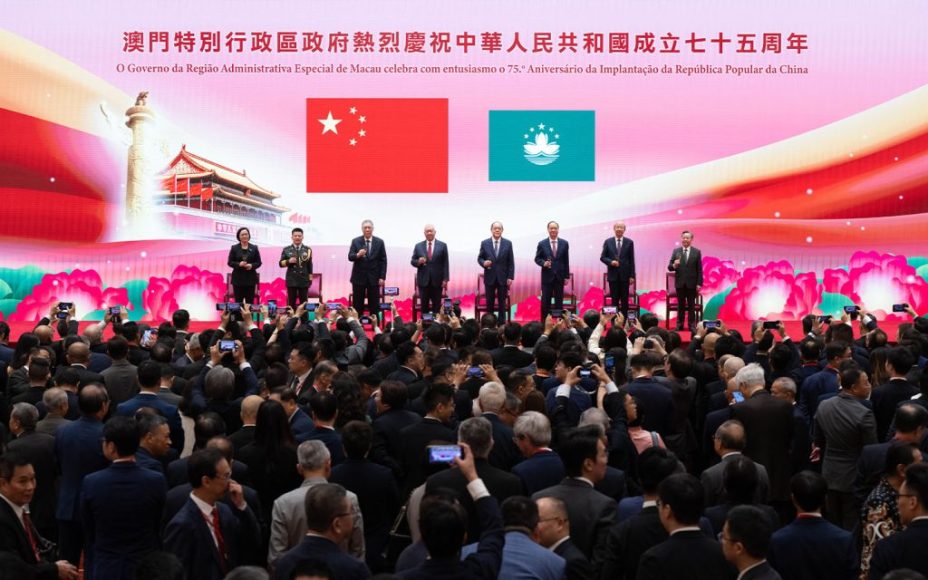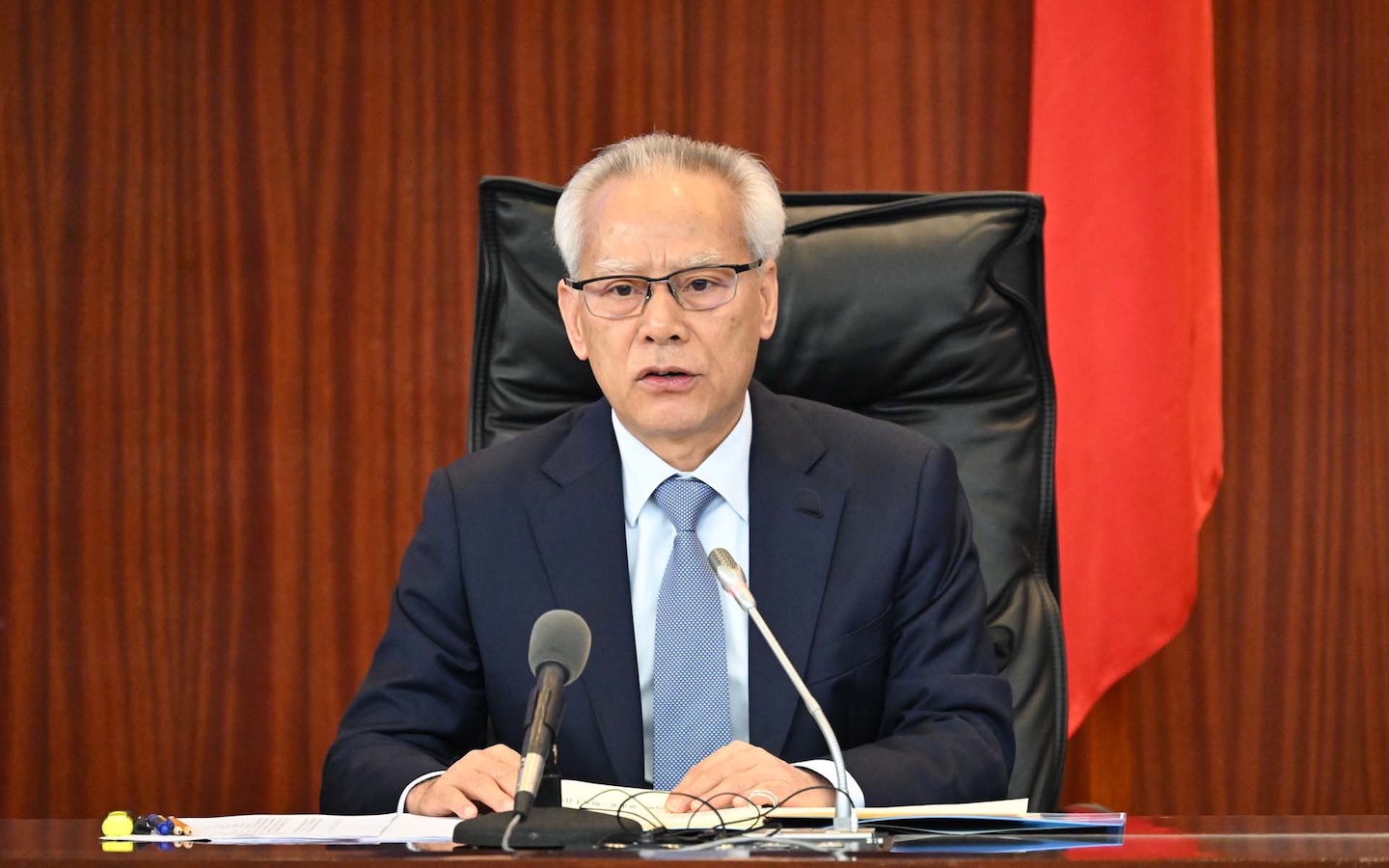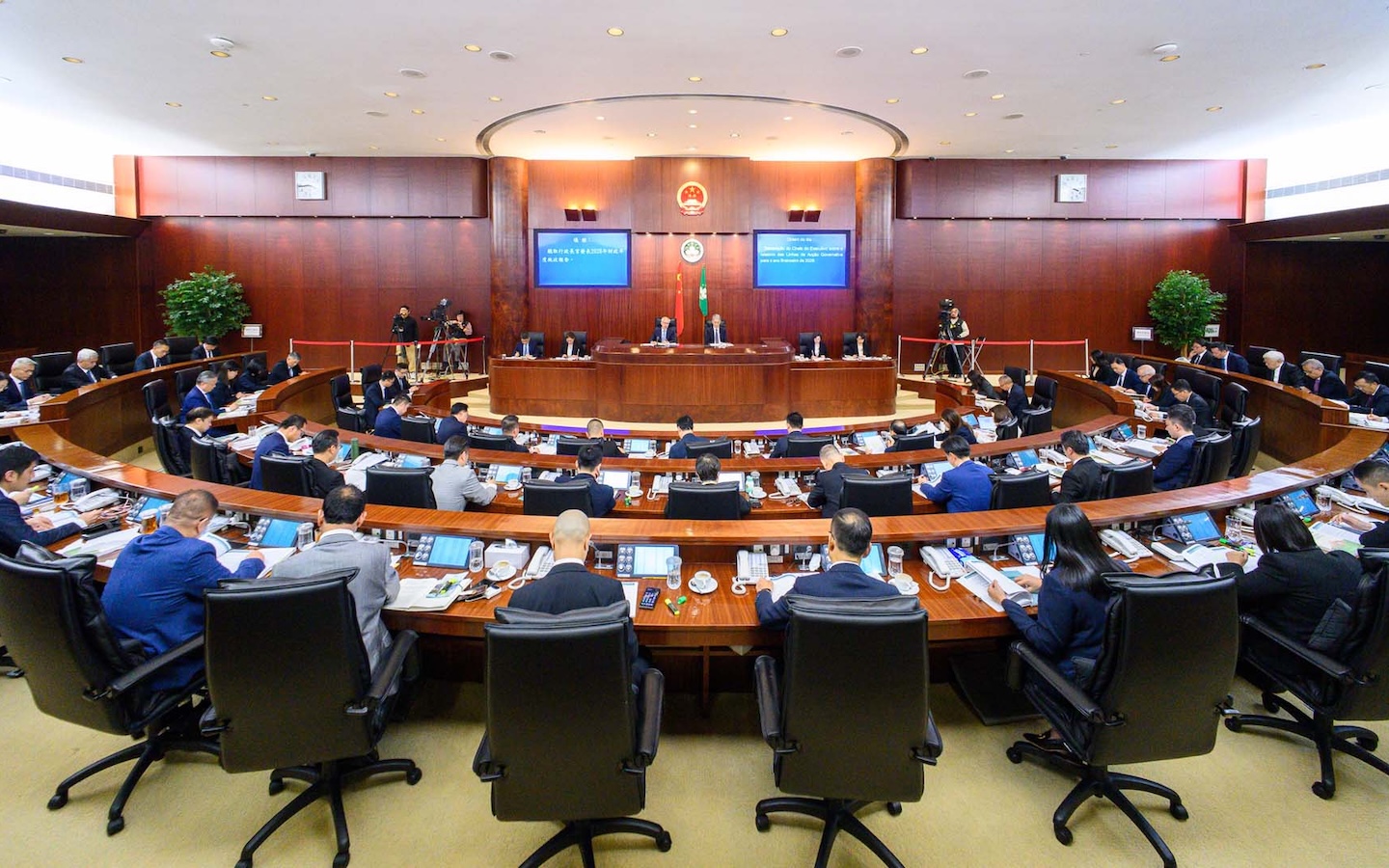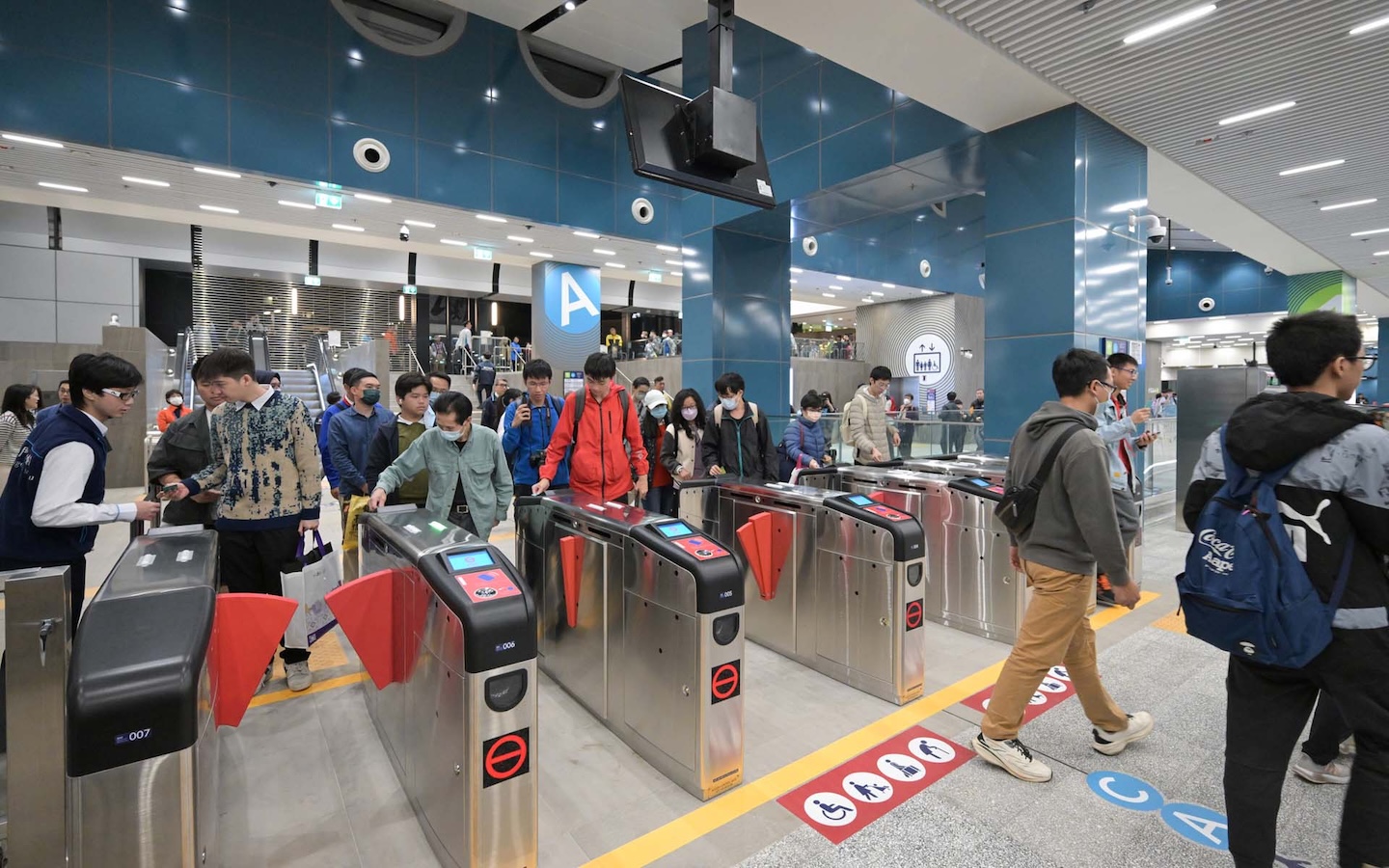In his National Day speech marking the 75th anniversary of the founding of the People’s Republic of China, Chief Executive (CE) Ho Iat Seng congratulated the Central Government on “achieving remarkable success in national development”. Naturally, Macao’s administrative return to the motherland was one such achievement, and Ho expressed his gratitude for the Central Government’s staunch backing over the past 25 years.
He said that, with the leadership of the central authorities and support from the mainland, all sectors of Macao had come together to “create the best development landscape in its history.”
Ho described the past quarter century as “a brilliant chapter in the successful practice of the ‘One Country, Two Systems’ principle with Macao characteristics.” He also praised “the Chinese path to modernisation in the new era”, a concept outlined in the Third Plenary Session of the 20th Central Committee of the Communist Party of China.
Referencing the session, which took place in July, Ho spoke of the ambitious blueprint the Central Government had created for the nation. “Learning about and implementing [the blueprint] is now a significant political task for the Macao Special Administrative Region, and will remain so for some time to come,” he said.
The CE also reflected on the past five years of Macao’s developmental trajectory. Ho said that Macao’s government had remained committed to the ‘One Country, Two Systems’ principle throughout his term, and had strived to elevate all sectors within the territory to new heights. He outlined the six tasks the Special Administrative Region (SAR)’s Government had focused on over the past five years.
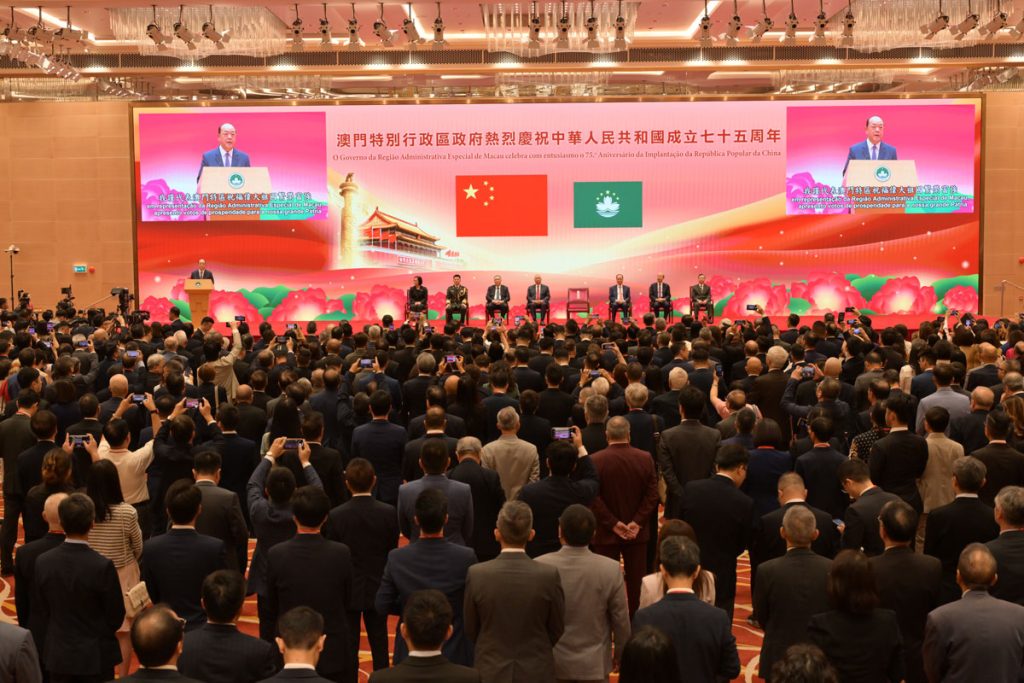
1. Implementing a holistic view of national security
Ho highlighted the government’s success in amending the Law on Safeguarding National Security and related regulations to better protect the country, continuously improving organisational structures and enforcement mechanisms. The chief executive also noted that the government had broadly united and strengthened the patriotic forces that loved both the nation and Macao.
2. Promoting appropriate economic diversification
Reducing Macao’s reliance on the gaming industry has been another major focus in the past five years. The CE hailed the ‘1+4’ strategy, which aims to develop the key emerging sectors of health; modern financial services; high tech industries; and large-scale conventions along with sports and cultural events. This strategy forms the backbone of Macao’s first comprehensive plan for appropriate economic diversification – which also involves implementing a new talent recruitment scheme designed to attract highly qualified professionals to the city.
Ho pointed to the many figures indicating Macao’s robust post-pandemic recovery since the territory lifted its Covid-19 restrictions. For example, gross domestic product reached 204.3 billion patacas for the first six months of 2024, fast approaching its 2019 equivalent. Macao’s fiscal reserves are currently higher than they were before the pandemic, the overall unemployment rate is very low and visitor numbers are rebounding quickly.
3. Improving residents’ well-being
Ho noted that the government had ensured investment in social resources and implemented a series of beneficial measures to promote sustainable development of social security systems, while continuously optimising housing, healthcare, education, and elderly-care services. The government is now implementing a five-rung housing ladder policy, involving investments of 15.9 billion patacas. He also pointed towards the recently opened Macao Union Hospital, which is set to take healthcare in the city to new heights.
4. Enhancing effective governance
Regarding governance, Ho said that the government had completed restructuring plans for 41 public departments and 19 autonomous funds in order to improve its operational efficiency. He highlighted a focus on developing systems of e-governance, citing the launch of the 2.0 version of the Macao One Account service as an example of this in action. For fresh progress on public administration reform, Ho noted that the government had refined systems for the delegation of power, and strictly implemented staff management, with the aim of creating a loyal, responsible, and efficient civil service.
5. Building better infrastructure
Over the past five years, Ho said that nearly 80 billion patacas had been invested in public works projects, including the Light Rapid Transit system, the newly opened Macao Bridge and extensive land reclamation projects. He also spoke of projects designed to future-proof the city, such as a crucial rainwater pumping station to combat flooding during extreme weather events, the promotion of new-energy vehicles and strengthened environmental protection efforts.
6. Furthering national integration
The CE described Macao as having “seized national development opportunities … in order to create new prospects for the city”. As the SAR’s leader, Ho oversaw the official establishment of the Guangdong-Macao Intensive Cooperation Zone in Hengqin. Since then, Macao authorities have worked hand-in-hand with their counterparts in Guangdong Province to accelerate the two regions’ integration. Milestones have included the establishment of a special two-tier customs system and numerous incentives for Macao residents to live and work in Hengqin.
Through capitalising on its historic ties with the Lusophone world, Macao has also strengthened its role as a commercial and trade cooperation service platform between China and Portuguese-speaking countries.
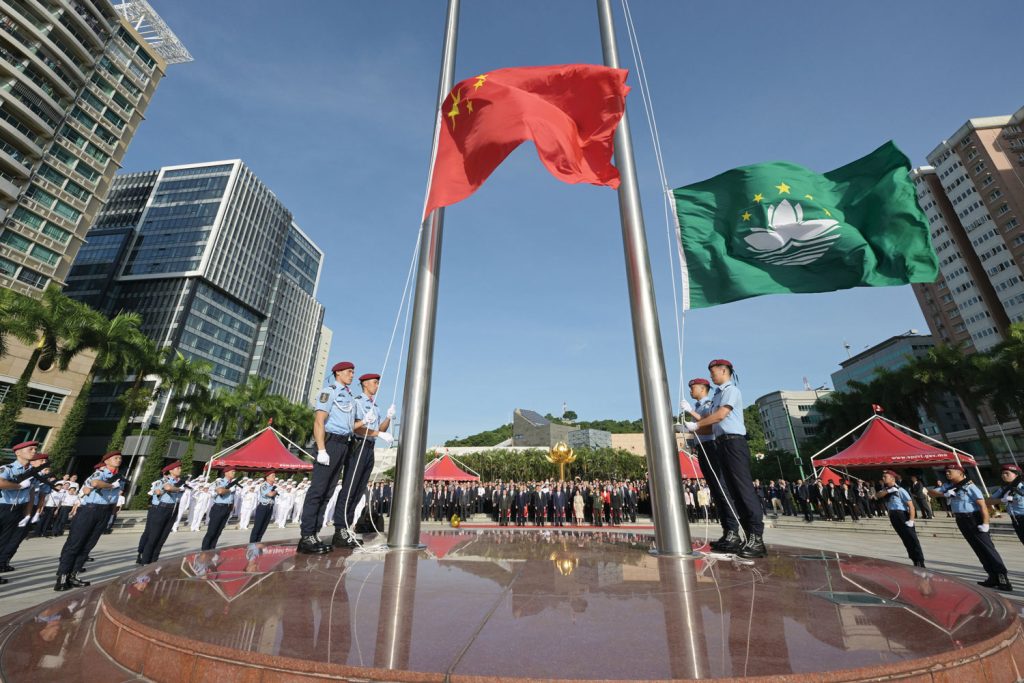
Giving thanks
Ho urged Macao to lean into its unique advantages and make “even greater contributions in the great rejuvenation of the nation.” He drove home the importance of adapting to changes and grabbing opportunities, including those presented during the Third Plenary Session.
Ho concluded his speech by reiterating his heartfelt thanks to the Central Government and everyone who “consistently cared about and supported Macao’s development”. That included Macao’s residents, for whom Ho expressed his sincere appreciation.
